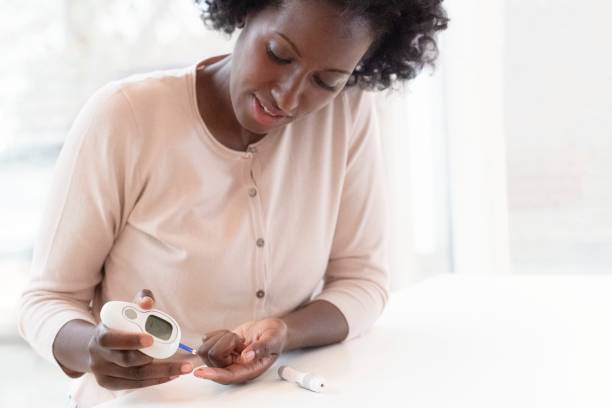
Diabetes is a devastating disease that impacts millions of Americans. It, unfortunately, heavily impacts the African American community at a rate that is hard to ignore. Just why is diabetes so prevalent in this community, and is there anything that can be done to address this problem? Fully understanding this issue and its scope can help this community fight back against worsening diabetes cases.
Why Black People Are at Higher Risk for Diabetes
The reasons why African Americans are at a higher risk for this disease include a complex interplay between various socioeconomic factors. These influences can vary depending on which sector of the community is affected but are consistent throughout many parts of the nation.
Factors Contributing to a Higher Incidence of Diabetes in African Americans
In a study on diabetes, it was found that African American individuals had a significantly higher risk of diabetes than white people, at a rate of about 66 more cases per 1,000 people. This study examined how biological and socioeconomic factors influenced this risk, as well as psychosocial concerns. The many factors that influenced this problem included:
- Obesity – The study leader stated that obesity was “driving” the higher risk in black people. They were surprised by this result because, over the last 20 years, there was a “narrative” that something else was at play besides obesity. However, the study found that this was not the case.
- Poverty – Poorer neighborhoods often have less access to healthy and high-quality foods, and fast food restaurants are far more common in African American communities than elsewhere. This can lead to excessive processed food that leads to dangerous weight gain.
- Health Care Accessibility – In this study, it was also found that African American communities were often poorly served by healthcare facilities. This often leads to slow diagnosis times and a lack of resources for people who did develop diabetes.
What Percentage of African Americans Have Diabetes?
The American Diabetes Association or ADA reported that the percentage of non-Hispanic African Americans with diabetes was 11.7 percent. That's nearly double the rates in non-Hispanic white individuals.
Furthermore, African Americans were at a higher risk of more severe diabetes complications. These included a 46 percent higher rate of diabetic retinopathy and a 2.6 times higher rate of end-stage renal disease caused by diabetes.
Why is Type 2 Diabetes More Common in African Americans?
Type 2 diabetes is more common in African Americans because of a higher rate of obesity among this population. Type 2 is primarily triggered by obesity and the APA reports that the African American community includes a 48 percent obesity rate compared to 32.6 percent among white people.
That higher obesity risk makes this condition far more likely to develop.
What is Diabetes?
Diabetes is defined as a chronic health condition that impacts your pancreas and how it operates. Your pancreas creates insulin to break down the sugar or glucose you ingest when eating carbohydrate foods. The pancreas in a person with diabetes no longer produces insulin or produces it at a much lower level. This causes a dangerous increase in sugar in your blood that can damage your body. Just a few things caused by diabetes include:
- Heart disease, including a higher risk of strokes
- Loss of vision or complete blindness
- Kidney disease or kidney failure
- Neuropathy or dead tissue in your extremities
These health problems develop slowly and can be either significantly decreased or stopped with diabetes treatment. Catching early symptoms of diabetes is also important because it can help those in the African American community know when they need care or special attention.
Common Symptoms of Diabetes
There are many symptoms that may indicate diabetes. These can vary heavily depending on the person and the severity of your condition. If you or someone you love is worried about diabetes, it is essential to pay attention to symptoms like:
- Excessive thirst and frequent urination
- Unexplained weight loss or weight fluctuations
- Exhaustion and weakness, even with rest
- Mood changes and surprising irritability
- Blurred vision or other vision problems
- Slow-healing sores on the body
- Infections throughout the gums, skin, and other sensitive areas
- Coldness in many extremities caused by poor circulation
Three Types of Diabetes
Diabetes is not a singular disease but three separate conditions that produce similar symptoms. Each has varying intensity levels, but all three are potentially dangerous if not caught early and treated. The three diabetes types to watch for include:
- Type 1 – Type 1 diabetes occurs early in a person's life when their immune system attacks their pancreas. This disease is not preventable and occurs in 5-10% of all cases. It also cannot be reversed, as type 2 diabetes may be in some situations.
- Type 2 – Type 2 diabetes may occur at any point and is usually triggered by excessive weight gain and diet. It is preventable and can be reversed by controlling weight gain and exercising more regularly. It affects 90 to 95 percent of people who have diabetes.
- Gestational Diabetes – Gestational diabetes develops in women who are pregnant and disappears after they give birth. However, some women may have lingering diabetes symptoms and may be at a higher risk of developing type two diabetes after pregnancy.
What Causes Diabetes?
Diabetes occurs for many reasons. Type 1 may occur if a child has a genetic predisposition toward diabetes, including a family history of diabetes. Its triggering cause is mysterious and not always easy to predict beyond that connection to family history.
Type 2 is almost always caused by poor diet and minimal exercise, especially weight gain. The pancreas starts to malfunction because of high sugar levels, which puts a larger demand on it than normal. This can cause the pancreas to slow its function and may even stop it from working.
Gestational diabetes occurs because of the higher demand for insulin placed on a woman's body due to the baby. As the baby develops, its body needs insulin. The mother may, therefore, eat more food and synthesize higher levels of insulin to provide for the baby, tiring the pancreas.
Type 2 remains the most common type in the African American community due to socioeconomic factors like highly processed diets, fast food, minimal chances for exercise, and poor access to healthcare facilities. Treatment can help minimize or even reverse type 2 and gestational diabetes.
Common Diabetes Treatments
Diabetes treatments center on providing the body with enough insulin to process glucose. You typically take insulin supplements several times a day after checking your blood sugar levels. High levels require larger doses to help reduce the severity of this disease on the body.
Insulin doses, whether through syringes, pens, or pumps, are the only way to treat type 1 diabetes.
An Artificial pancreas or automated insulin delivery system helps those with very severe type 1 diabetes. Those with type 2 also receive insulin doses but may also get other types of care.
For example, lifestyle changes can decrease symptoms and even stop type 2 diabetes entirely. These changes should occur quickly in the disease to give the body time to recover. Medications may help balance a person's pancreas health and nurse it back to a more robust operation.
Gestational diabetes often includes regular physical activity, careful glucose management, changes in diet, and temporary insulin shots. These shots help take some pressure off the pancreas and help make it easier for pregnant women to prevent long-term risk for type 2 diabetes.
Promoting Diabetes Prevention in the Black Community
Diabetes prevention is a critical way of minimizing this disease's impact and can help keep minimize long-term complications. Within the black community, this can include promoting activities like:
- Losing weight by getting more exercise and eating a better diet
- Managing stress, which can contribute to excessive eating behaviors
- Quitting smoking tobacco, an addiction that impacts nearly 15 percent of all African Americans
- Improving access to healthcare facilities, including providing better community resources
- Teaching healthier habits to African American children in school, such as the importance of balanced diets
Finding Support and Resources for Diabetes
Here are a few resources that African Americans with diabetes can use to learn more about their condition or get help from professional organizations:
- American Diabetes Month - November 2022 – Every November, people can reach out to various healthcare organizations to learn more about how to prevent and manage diabetes.
- The Association of Diabetes Care & Education Specialists’ Tools and Resources – This organization includes several resources and tools that help people live with diabetes more easily.
- The Alliance to Reduce Disparities in Diabetes’ Resources for African Americans with Diabetes – African Americans with diabetes can use this site to learn more about this condition.
Taking Care of Your Health
If you or someone you love is an African American with a high risk of diabetes, download the Evidation App or sign-up for Evidation online. This app helps to track your health and provides helpful resources that can help improve overall health.









